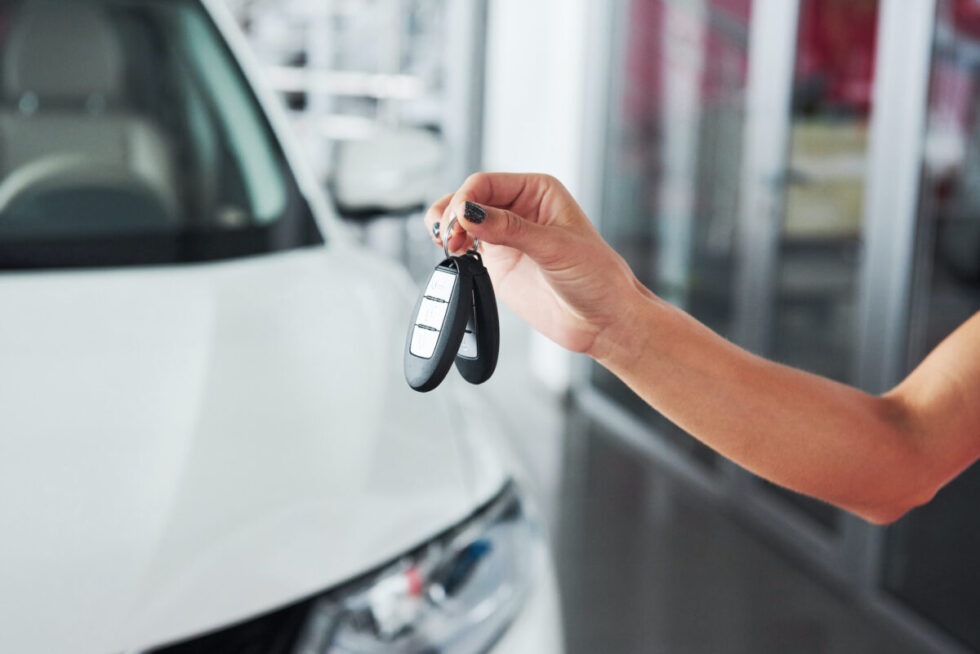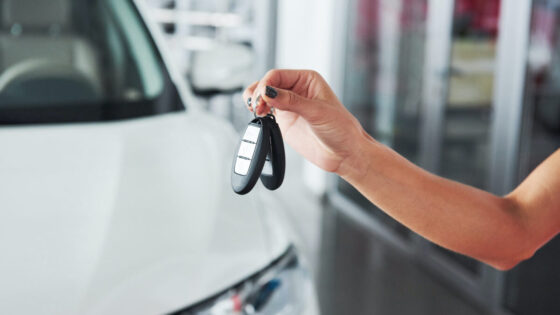Take The Wheel: A Guide To Lease-To-Own Cars

Lease-to-own cars are becoming increasingly popular as an alternative to traditional car financing. But are they the right choice for you? In this article, we’ll explore the pros and cons of lease-to-own cars, how they work, who they’re best suited for, and some alternatives you might consider.
How Lease-To-Own Car Programs Work
Lease-to-own cars work similarly to traditional car leases, with a few key differences. When you sign a lease agreement with a leasing company, you agree to make monthly payments on the car for a set period of time, typically between 2 and 5 years. During this time, you are essentially renting the car from the leasing company, and you don’t own it outright.
At the end of the lease, you have the option to purchase the car for a predetermined amount, called the buyout price. This amount is typically set at the beginning of the lease and is based on the estimated value of the car at the end of the lease term. If you decide to buy the car, you’ll need to pay the buyout price plus any additional fees and taxes.
One thing to keep in mind is that the buyout price may be higher than the current market value of the car. This is because leasing companies set the buyout price based on their estimation of the car’s future value, which may not always be accurate. If the actual value of the car at the end of the lease is lower than the buyout price, you may end up paying more for the car than it’s actually worth.
Some lease agreements may require you to make a down payment or pay additional fees at the beginning of the lease. This can increase the overall cost of the car and may make lease-to-own cars less appealing.
Some leases may have restrictions on mileage or require you to maintain the car in a specific condition. Failure to comply with these terms could result in additional fees or penalties.

Pros And Cons Of Lease-To-Own Cars
As you can see, lease-to-own cars can be a good option if you want lower monthly payments and more flexibility in vehicle choice. However, there are pros and cons to this decision.
Pros
- Flexibility. With lease-to-own cars, you have the option to choose from a variety of vehicles, including newer models with advanced features.
- Better credit score. Regular on-time payments on a lease-to-own car can help improve your credit score and make it easier for you to secure financing in the future.
- Easy upgrade. If you’re interested in upgrading your car at the end of the lease term, it’s easy to do so with lease-to-own cars. You can simply return the car and pick a new one, or you can decide to buy the car, resell it, and upgrade to a newer model.
- No down payment. Some lease-to-own car programs don’t require a down payment, making them a more accessible option if you are strapped for cash.
Cons
- Higher interest rates. Lease-to-own cars typically have higher interest rates than traditional car financing, which can make them a more expensive option in the long run.
- Additional fees. Lease-to-own car programs may come with additional fees, such as wear and tear fees. Some of them may be hidden.
- Negative equity. If you end up owing more on the car than it’s worth, also known as being “upside-down,” you may end up losing money if you decide to sell or trade in the car.
- Limited mileage. Many lease-to-own car programs have restrictions on mileage, which can be a problem if you do a lot of driving. Exceeding the mileage limit can result in additional fees or penalties.
Who Should Consider Lease-to-Own Cars?
Lease-to-own cars can be a great option for a variety of people, depending on their circumstances. You might want to consider lease-to-own cars if you:
- Have poor credit. If you have poor credit, it can be challenging to secure traditional car financing. Lease-to-own cars, on the other hand, often have more lenient credit requirements, making them a more accessible option.
- Have limited funds for a down payment. If you don’t have a lot of money saved up for a down payment, lease-to-own cars can be an attractive option. Some lease-to-own car programs don’t require a down payment at all, which can make it easier to get behind the wheel of a new car.
- Have a flexible vehicle choice. Lease-to-own cars offer more flexibility when it comes to vehicle choice than traditional financing. You have the option to choose from a variety of cars, including newer models with advanced features, which can be appealing to people who want a more customized driving experience.
- Want lower monthly payments. Lease-to-own cars often come with lower monthly payments than traditional car financing. This can be a significant advantage for people who are on a tight budget or want to save money.
- Want to build equity. With lease-to-own cars, you have the opportunity to build equity in the car over time. This can be a significant advantage if you’re looking to sell or trade in the car in the future.
Ultimately, whether lease-to-own cars are right for you will depend on your individual circumstances and financial goals. Be sure to weigh the pros and cons carefully and consider all your options before making a decision.

Alternatives To Lease-To-Own Cars
Lease-to-own cars aren’t the only option if you’re in the market for a new vehicle. Here are some alternatives you might consider.
Traditional Car Financing
If you have good credit and can afford a down payment, traditional car financing may be a better option for you. This typically involves securing a loan from a bank or other lender and making monthly payments on the car until it’s paid off.
Car Subscription Services
Car subscription services are becoming increasingly popular as an alternative to traditional car ownership. With a car subscription service, you pay a monthly fee to have access to a fleet of cars, and you can switch between them as needed.
Used Car Purchases
If you’re on a tight budget, buying a used car may be a good option. Used cars are typically less expensive than new cars and can still provide reliable transportation.
Carpooling Or Public Transportation
If you live in an area with good public transportation or have access to carpooling, you may not need to own a car at all. This can save you money on monthly payments, insurance, and maintenance costs.
5 Tips For Lease-To-Own Car Buyers
Lease-to-own cars can be a great option for people with poor credit or limited funds, but it’s important to be vigilant and do your research to avoid getting taken advantage of. Here are five tips for lease-to-own car buyers:
- Read and understand the contract. Look out for any hidden fees or penalties, and be sure you know what you’re getting into before you sign on the dotted line.
- Research the vehicle and seller. Check the car’s history report to make sure it doesn’t have any major issues, and research the seller to make sure they’re reputable.
- Check for hidden fees. As mentioned, some lease-to-own car programs come with hidden fees, such as charges for excess wear and tear. Make sure you understand all the fees associated with the lease agreement before signing anything.
- Make on-time payments. One of the best ways to ensure you don’t run into any problems with your lease is to make your payments on time. Late payments can result in additional fees or penalties and can damage your credit score.
- Consider buying the car early. If you find that you love your leased car and want to keep it for the long haul, you may be able to buy it early. This can help you lock in a lower buyout price and avoid any surprises at the end of the lease term.
By following these tips, you will ensure that your lease-to-own car experience is a positive one.
Final Thoughts
Lease-to-own cars can be a good option if you have poor credit or limited funds for a down payment. However, they do come with some significant drawbacks that you should be aware of before signing a contract. Be sure to weigh the pros and cons carefully and consider all your options before making a decision.
FAQ
A: A lease-to-own car program is a financing option where you lease a car for a set period of time with the option to purchase it at the end of the lease term. It allows you to drive a car without committing to a long-term loan and gives you the opportunity to own the car if you decide to keep it.
A: With a lease-to-own car program, you will typically make a down payment and then make monthly lease payments for a set period of time. At the end of the lease term, you will have the option to purchase the car for a predetermined price.
A: Pros include the ability to drive a car without committing to a long-term loan, the option to purchase the car at the end of the lease term, and potentially lower monthly payments than other financing options. Cons include potential fees and charges, limitations on the number of miles you can drive, and the fact that you may end up paying more for the car in the long run.
A: Lease-to-own car programs are similar to car leases and car loans, but they have some key differences. With a lease-to-own program, you have the option to purchase the car at the end of the lease term, whereas, with a car lease, you typically have to return the car. Car loans involve financing the purchase of a car, which means you will typically pay more per month but will own the car outright at the end of the loan term.
A: Before trading in or buying out a leased car, you should consider the current value of the car, any fees or charges associated with ending the lease early, and whether it makes financial sense to purchase the car outright.



